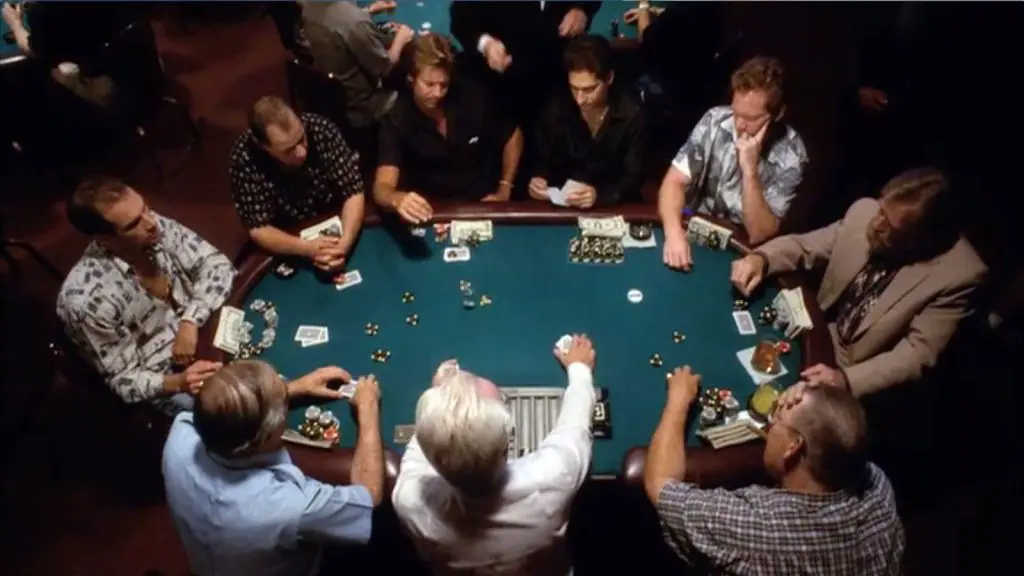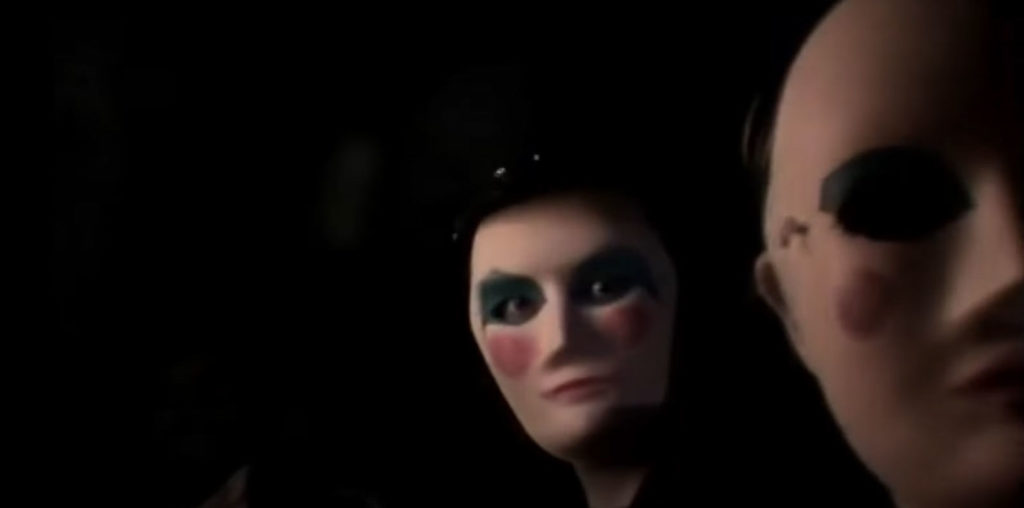
After winning her Academy Award for 1998’s “Shakespeare in Love,” Gwyneth Paltrow seemed to be heading into the territory of the Oscar Jinx that seems to claim so many award-winning actors. With a post-Oscar canon made up of strange career choices – ranging from her fat suit romp in “Shallow Hal” to her vamping in front of a green screen in “Sky Captain and the World of Tomorrow” to wasting her time in such forgettable muck as “Duets” and “Sylvia” – it seemed as if Paltrow’s career was speeding recklessly in the wrong direction.
Mercifully, Paltrow has finally returned to the level of quality production which takes full advantage of her talents: John Madden’s masterful adaptation of David Auburn’s Pulitzer Prize-winning drama “Proof.” Paltrow gives the performance of the year, and perhaps of her career, in this extraordinary and powerful dissection of genius, jealousy, madness and serenity. It is a complex and often unsettling drama, yet it is fueled by Paltrow’s extraordinary portrayal of a woman simultaneously driven to heights of intellectual triumph and depths of emotional despair.
Paltrow plays Catherine, the twentysomething daughter of a genius mathematics professor (Anthony Hopkins) whose career and life was abruptly interrupted by mental illness. Catherine dropped out of school and put her life on hold for five years to provide home care for her father in his final five years, and she sought to spark his return to lucidity by encouraging him to create mathematical proofs. She also engaged in this exercise, embarking on the presentation and solving of a complex equation which was never previously considered.
In the aftermath of her father’s life comes two very different forces into her world: her condescending older sister Claire (Hope Davis), who insists Catherine has inherited their father’s mental illness but refuses to acknowledge Catherine may also possess their father’s gift for mathematics, and Hal (Jake Gyllenhaal), a student of the late professor who claims to be seeking evidence of a lost proof among the hundreds of seemingly irrational and incoherent notebooks which the late professor left behind during his final years of mental decay. Hal also gets the hots for Catherine, but the sincerity of his emotion is called into question with dubious behavior on several occasions.
Catherine, for her part, is haunted by her father, both literally (he appears in conversations as a ghost) and spiritually (she genuinely believes she is falling victim to an inherited strain of insanity). Battered by her perceived failings as a daughter and student, she is victimized by Claire’s mean-spirited diatribes and Hal’s inconsistent behavior towards her.
I hesitate to dive further into the story (beautifully adapted to the screen by Auburn and Rebecca Miller) because it would ruin key elements in the plot. Hopefully, it is sufficient to say that Paltrow speeds through an astonishing range of sensations in this troubling and multi-textured role of a tortured young woman who is literally lost in a physically and intellectually hostile environment. In her silences, Paltrow says more with body language and the direction of her eyes than any scroll of dialogue could provide. She is among the rare echelon of actors who can speak volumes without saying a word – one can literally feel the weight of sorrow and the cruel barrier of ennui bearing down on her just from looking upon her. As she is betrayed by her sister and her would-be suitor, she slowly and silently caves in to the point that one can feel the woman is dying before our eyes.
But when she speaks, she brings a power that will leave the soul chilled. Her prime moment comes when she abruptly takes the podium at a memorial service for her father and casually wonders why none of the hundreds who showed up to pay final tributes ever offered assistance when her father was in his final dying years. It is not an actressy moment – she speaks matter-of-factly, without artifical emphasis or melodrama, almost to the point that one forgets there is a performance going on. It is a simple but devastating moment which defines “Proof” in its condemnation of hypocrisy.
Paltrow’s strong performance is such that it occasionally runs the risk of throwing the film off-kilter since the cast is not at her high level of acting skill here. But mercifully, “Proof” is rounded out with a fine ensemble which brings life and heartache to the screen. Included here are a somewhat portly Hopkins as the mentally frayed father/professor (let’s face it – he can read a Chinese restaurant menu and it would be peerless), Davis as the sister from hell (her icy wickedness will resonate with audience members who are cursed with similar siblings) and Gyllenhaal, who uses his sometimes annoying movie star weaknesses (the big puppy eyes, the thin voice, the awkward gait, the poster boy posing) to the fullest advantage of his character’s deep flaws. Again, it would be wrong to give away too much of what transpires here, but let it be enough to say that Gyllenhaal deftly uses his nice-guy on-screen persona to explore intellectual extremes that turns this pretty boy into something not-so-pretty.
John Madden’s direction is brisk and focused – there is nary a wasted frame here. Special kudos are also in order for Stephen Warbeck’s haunting yet subtle score – this is the very rare musical score which flavors the scenes without drowning them.
But ultimately, “Proof” is Paltrow’s triumph. For anyone who wonders where to find the great performances of our time, Paltrow’s star turn in “Proof” is the place to begin.

